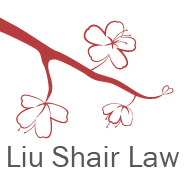Recent Developments in Estate Planning
As a member of professional organizations like East Bay Trusts and Estates Lawyers (EBTEL) and Estate Planning Council of Southern Alameda County (EPSAC), I stay on top of developments. I think continuing education is important and this makes me a better lawyer to serve you.
I wanted to highlight some of the big changes recently.
In December 2017, there were sweeping changes made to federal taxes. Attorneys and accountants are still figuring out all the details. In fact, it's unclear whether the federal tax forms will be changed and completed in time for 2018 taxes next year. Nonetheless, there are some changes we are well aware of:
-The annual gift exclusion has (as predicted) increased to $15,000 per year per recipient.
-Annual gifts to non-U.S. citizen spouses are capped at $152,000.
-The estate tax exemption has doubled to ~$11 million per U.S. citizen.
(There are inflation adjustments that the IRS still has not released, so the total exemption amount will likely be $11.18 million or $11.2 million)
Based on these numbers, there will be roughly 1,800 taxable estates in the United States. This level of estate tax exemption will sunset in 2025; this means that the numbers are valid until 12/31/2025. Congress will need to decide whether to extend. If Congress does not extend, then the exemption will revert back to what it previously was. In 2017, the estate tax exemption was $5.49 million per person. Given the rate of inflation, it is unlikely to go below that figure.
In the next several decades, it is expected that $30 trillion of wealth transfer will be completed to children and grandchildren (see link). This means that Estate Planning is particularly important, even if you do not have a taxable estate.
If you have questions about Estate Planning, please get in touch. Remember that Estate Planning is a personal process and it is important not only that you ask questions, but that an attorney ask you questions to fully understand your situation and needs. If an attorney isn't asking you questions, they're making assumptions, and this may lead to poor Estate Planning.
Please note that I do not provide tax advice and you should seek an accountant or CPA for advice. If you would like suggestions on these professionals, please contact the office.
